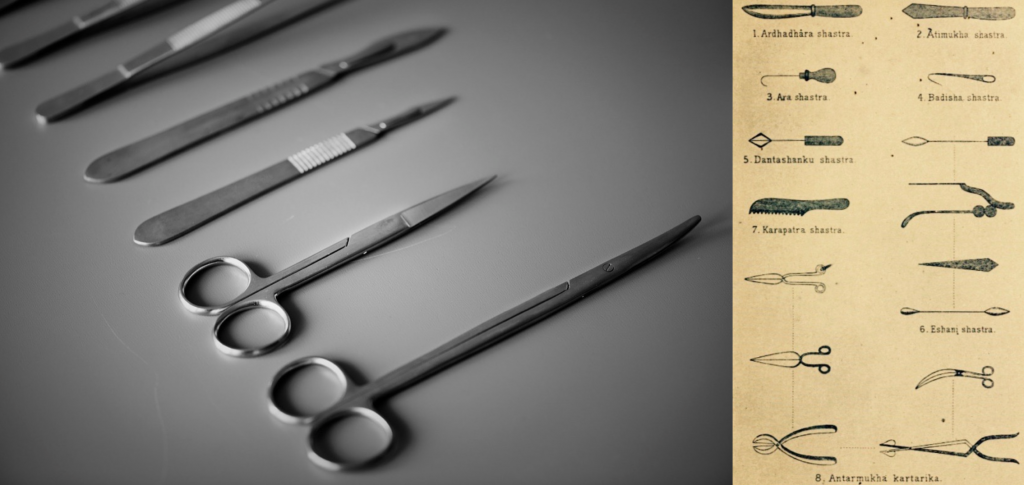Ayurvedic nutrition, lifestyle and herbs
If there is proper nutrition, no medicine is needed.
If there is no proper nutrition, no medicine will help.Ayurvedic principle
- When would you want to use this approach?
- What problems can be addressed?
- What is Ayurveda?
- What methods are used?
- How does it work in practice?
- Booking and prices
When would you want to use this approach?
- If you are tired of combating symptoms and diseases;
- If you want to approach your health and wellbeing systemically;
- If you have a proactive attitude and want to introduce sustainable changes into your life;
- If you prefer to work on root causes rather than getting a temporary quick fix.
What problems can be addressed?
Multiple chronic conditions are successfully addressed by the Ayurvedic method, which includes adjustments in diet and lifestyle and using medicinal herbs. Here are the most common problems:
-
- women’s health at all stages of life
- chronic digestive disorders
- weight problems
- allergies and intolerances
- autoimmune conditions
- skin problems
- aches and pains
- fatigue, anxiety, panic attacks
What is Ayurveda?
“Ayush” means “life” and “Veda” means “science / knowledge” in Sanskrit.
Ayurveda (prounounced as “EYE – oor – VAY – duh”) is a holistic Indian medical system that has been in use for several thousand years. The foundations of multiple modern therapies, including surgery, are rooted in Ayurveda. These days more and more modern research papers emerge proving efficiency of Ayurvedic treatments (for the record, modern research the way we know it today is less than two hundred years old (-:).
Ayurveda gives one a very elegant, logical and practical way of viewing reality. It provides a bird’s eye view of human health and wellbeing in the context of the environment. It takes into account the whole person, with their individual traits and circumstances, rather than reducing diseases to the physical body parts out of context. This offers a truly personalised approach to patients.
The main Ayurvedic approaches include adjusting nutrition, improving digestion, introducing lifestyle changes, using herbs and special therapies including Ayurvedic massage. There is a large emphasis on prevention and on sustainable management of chronic conditions in Ayurveda. It is a method that works on root causes rather than on symptoms, with long-term wellbeing in mind.

One of the most important ancient medical treatises “Sushruta Samhita ” (~500 BCE) discusses surgery and describes several dozens of surgical instruments (right).
What methods are used?
The main Ayurvedic concept is that every person is born with a unique constitution that is called Prakruti in Sanskrit. In the first approximation, you can think of it as a certain combination of genes. This “constitution at birth” (Prakruti) represents the balanced state. Due to multiple factors and events, the person’s state can deviate from the original balance and become imbalanced; this imbalanced state is called Vikruti in Sanskrit. The aim of all Ayurvedic manipulations is to restore the original balanced state from the imbalanced.

Because my background is in biochemistry and life sciences, I know how different molecules work in the body. I also know how scientific research works and how getting into too many details while losing the bigger picture can be detrimental for health and wellbeing. Therefore, I use the Ayurvedic method to get the bigger picture and combine it with my knowledge of biochemical details where they are needed.
How does it work in practice?
During the initial consultation which lasts about one hour, you will be asked questions about your complaints, medical history, food habits, digestion, lifestyle etc. Traditional methods of diagnosis, such as pulse and tongue diagnosis, will also be used. The practitioner will establish a working hypothesis about the nature and origins of your imbalance and offer you a treatment plan.
You will receive a clear nutritional plan and lifestyle recommendations. You will also receive a herbal mix or an individual herb that you will need to take for several months. After the initial consultation, it will take you some time to introduce the suggested changes into your daily routine. Although the results might be seen just after a few days of taking herbs and introducing changes in diet and lifestyle, the real goal is to gradually restore balance. At the beginning, it is recommended to have follow-up consultations every few weeks to see how you respond to the treatment, and to adjust it if needed.
This is a complementary approach, so you will never be asked to stop any medication you are currently on. In the course of treatment it may happen that you no longer need it or need smaller doses, but that you would then have to discuss with your primary care provider.
Booking and prices
You are welcome to send a no-obligation enquiry briefly explaining your problem. I will get back to you and let you know what I can offer. Please use contact information below to get in touch.
To make an appointment or ask a question please call 07564 720352 (Mon-Fri 10:00 – 20:00), e-mail info@1000milestherapy.com or use the contact form.